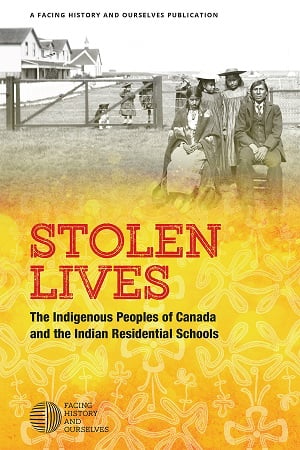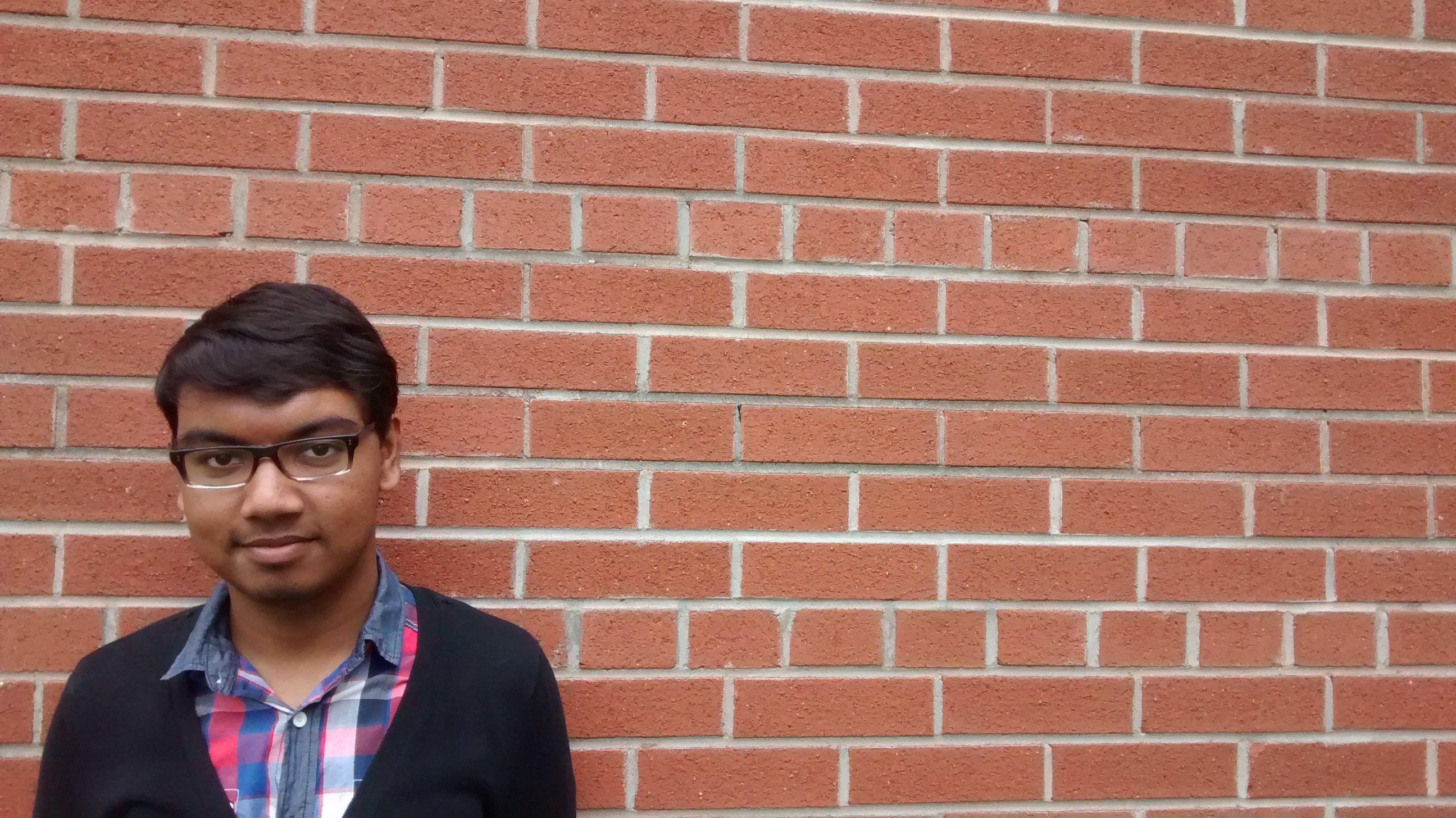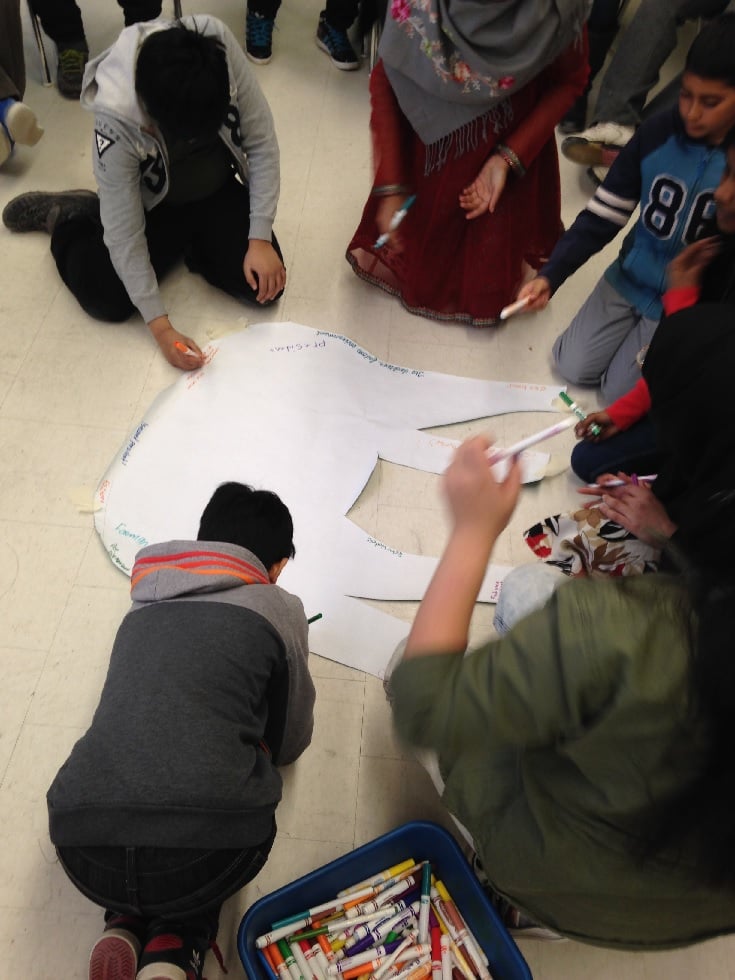This blog post is the 3rd in a multi-part series. Natalie Steele, an educator with Peel District School Board in Ontario, shares additional resources and strategies for your classroom on the topics of Black identities, humanizing stories, amplifying missing voices in the curriculum, and correcting the systemic abuses of history in schooling. This particular piece reflects on FacingToday's blog post “Black Women Educators’ Roundtable on Teaching and Current Events”.
Reflecting on “Black Women Educators’ Roundtable on Teaching and Current Events”
Posted by Natalie Steele on January 21, 2021
Topics: reflection, race, Equity in Education, Facing Canada, anti-racism
Looking for a closing activity before the holiday break?
We have all felt the overwhelming impact of 2020 in our own ways. As stated in a viral tweet made in April by Damian Barr (@Damian_Barr), “We are not all in the same boat. We are all in the same storm. Some are on super-yachts. Some have just the one oar.” Each of us has uniquely been affected by this unprecedented moment in history.
Topics: English Language Arts, English Classroom, reflection, English, Holiday lesson, pandemic
Difficult but Necessary: How 2 Educators are Facilitating Conversations About Injustice
Posted by Mariam Hazhir and Lindsay Hutchison on October 6, 2020
In this post, Social Studies teacher Lindsay Hutchison and Math, Science and Careers teacher Mariam Hazhir reflect on their teaching following the murder of George Floyd last June and share how they seek to practice antiracist educator mindsets, foster reflective conversations about racial inequity as allies, encourage critical consciousness and outline five principles that teachers of all disciplines can practice.
Topics: Choosing to Participate, Canada, reflection, Equity in Education, anti-racism
Understanding Contemporary Issues Through a Deep Understanding of History: A Resource List
Posted by Facing History and Ourselves Canada on September 14, 2020
This resource list is part of a blog titled, Engaging as Co-Conspirators in Anti-Racism Work, which is a statement about our commitment as the staff of Facing History and Ourselves Canada to our mission to stand up against bigotry and racism. The Facing History and Ourselves Canada team have been reading, watching, and learning from the following resources. This is by no means an exhaustive list and we would love to hear from you what you are reading, and who are the voices that you are learning from.
Topics: Choosing to Participate, Learning, reflection, Reading List, Scope & Sequence, anti-racism
Creating Meaningful Responses to Memoir and Engaging in Reciprocity
Posted by Alysha Groff on June 21, 2019
This spring, Facing History and Ourselves, in partnership with the Azrieli Foundation Holocaust Survivors Memoir Program, invited 175 students from 6 schools to layer onto their learning about the history and legacies of the Holocaust, or of Canada's Residential Schools by reading Survivor memoir. Students read Theodore Fontaine’s Memoir Broken Circle: The Dark Legacy of Indian Residential Schools, or excerpts of Nate Leipciger’s Memoir The Weight of Freedom, then created pieces that reflected their understanding and responses to these testimonies, which were gifted to each Survivor.
Topics: Toronto, Holocaust, Memoir, Facing History and Ourselves, Survivor Testimony, Canada, Residential Schools, Canadian History, Student Work, project, genocide, Holocaust and Human Behaviour, reflection, Connected Learning, Grade 10 History, HSB, CHC, difficult conversations, trc, stolen lives, facing history pedagogy, Azrieli Foundation Memoirs, Decolonizing Schools, Holocaust History in Canada, Facing Canada, cross curricular teaching and learning, collaborative inquiry
Humans of the Woodlands: Choosing to Participate through Blogging and Photography
Posted by Alysha Groff on April 21, 2016
Each year, like all educators, I think about new culminating activities that are meaningful and engaging. Inspired by Humans of New York on Facebook, I thought this concept would fit well into my Grade 11 Genocide and Crimes against Humanity course. In fact, the more posts I read, the more I realized how closely aligned they are to Facing History’s Scope and Sequence.
Topics: Art, Choosing to Participate, Identity, Culturally Responsive and Relevant Pedagogy, reflection
The truth needs to be told. The truth needs to be taught.
-Anonymous student
This year has brought a lot of change to my classroom - for one, it’s in a new school! I started the year at Central Toronto Academy (CTA) in downtown Toronto. It has been a fantastic experience working with the staff and getting to know a whole new group of students. I was particularly excited to bring Facing History and Ourselves into a new school and see how it was picked up by students unfamiliar with the organization and it's pedagogy.
Topics: Choosing to Participate, Human Rights, History, Canada, EdTech, Technology, Truth and Reconciliation, Indigenous History, current events, Indigenous, In the news, Social Justice, reflection
As an educator I often wonder what students remember once they have left my classroom. It is my hope that when they leave they take with them critical thinking skills, the ability to engage in difficult conversations, and a deeper understanding of how we are all connected - in the past, present, and future. Through all of my various attempts to learn from my students what they are getting out of their Facing History and Ourselves class, I have found that the best way to find out what students are learning is to ask them.
Each year, at the end of our grade 11 elective Facing History and Ourselves course, Genocide and Crimes Against Humanity, we take the time to reflect on our learning and ourselves. This year a group of students from my classroom chose to participate in a reflective interview process in lieu of their final journal entry assignment, and agreed to share their reflections.
Below, as inspired by the popular blog Humans of New York and the Facing History project, Humans of the Woodlands, you'll have the chance to glimpse into the classroom learning and life of a few of my Facing History and Ourselves students.
Topics: Choosing to Participate, Identity, History, Holocaust Education, Memorial, We and They, Culturally Responsive and Relevant Pedagogy, legacy, Genocide and Crimes Against Humanities Course, Holocaust and Human Behaviour, Inside a Genocide Classroom, Social Justice, Personal history, reflection
Finding Hope: How One Student Woke Me Up To Why I Teach Genocide Studies
Posted by Lanny Cedrone on April 10, 2014
“Sir, it keeps happening again and again. We don’t learn. I don’t think we’re going to get better. There doesn’t seem to be much hope.”
Three years ago a grade 12 student said this to me in my West and the World class. Every so often it echoes in my head. She was doing a research paper on Rwanda and the United Nations, and had done a significant amount of reading on the topic and she was passionately upset about how the world had allowed the Rwandan Genocide to happen.
Topics: Innovative Classrooms, genocide, Genocide and Crimes Against Humanities Course, Lesson Ideas, CHG, Inside a Genocide Classroom, Social Justice, reflection
Voice, Reward, and Expectations: Reflections on a Middle School Classroom
Posted by Ariel Vente on March 20, 2014
As elementary schools have just passed the mid-point of the school year, I’ve taken some time to reflect on the first half of the year. Schools are part of a larger educational system. However, our classrooms are also a microcosm of society; a community of members with jobs to do, and rules, norms and expectations, which members are expected to follow. But, as we are too well aware, within the larger society, we encounter issues of unfairness and injustice. I’ve been questioning my practice and asking myself: Does my classroom parallel the oppressions of our society? Am I reinforcing and reproducing what is happening in the larger society in my classroom?
Topics: Professional Development, Identity, Urban Education, Regent Park, Middle School, Culturally Responsive and Relevant Pedagogy, Social Justice, Deficit Thinking, reflection

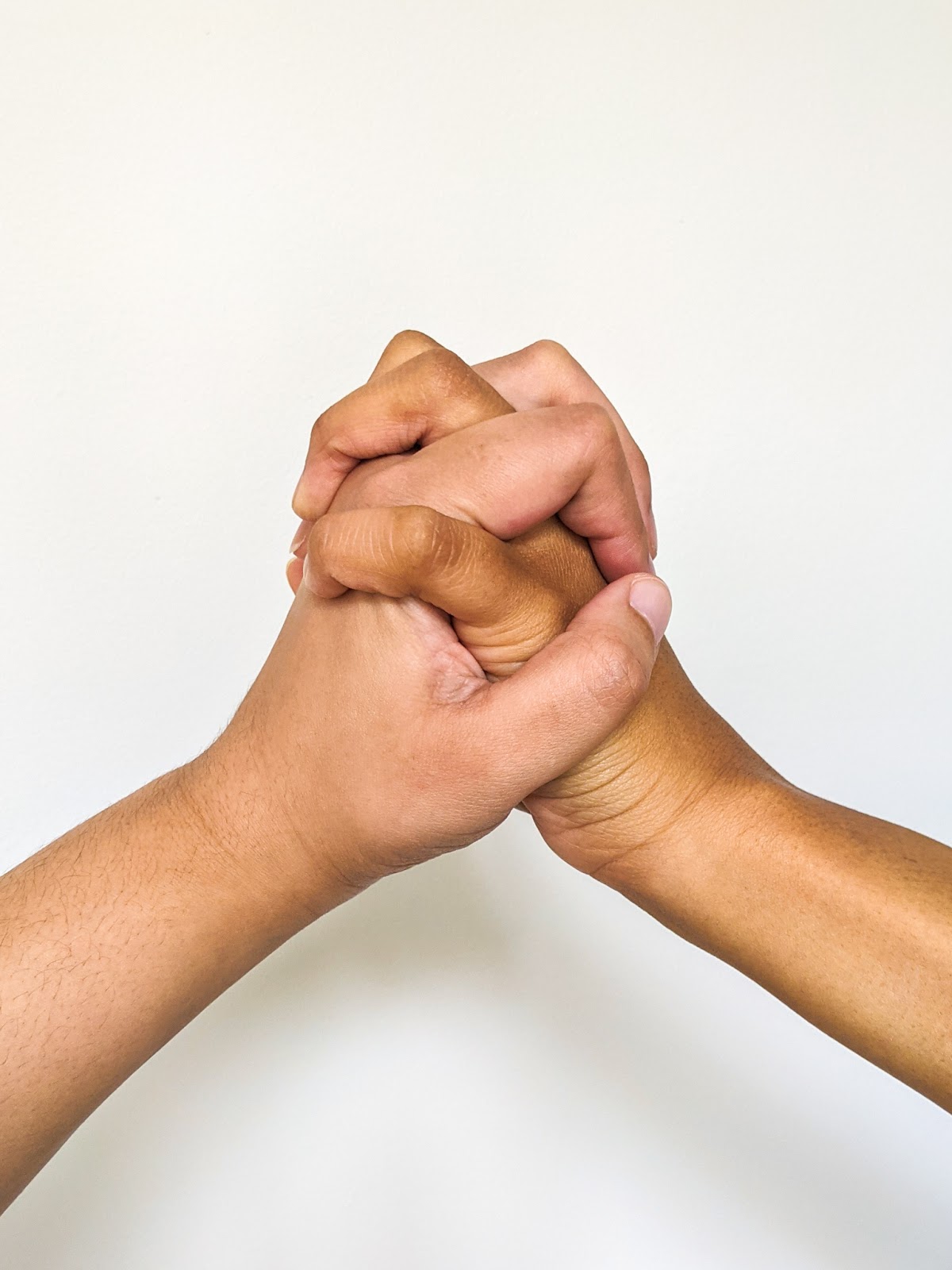
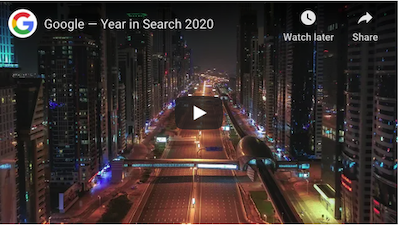

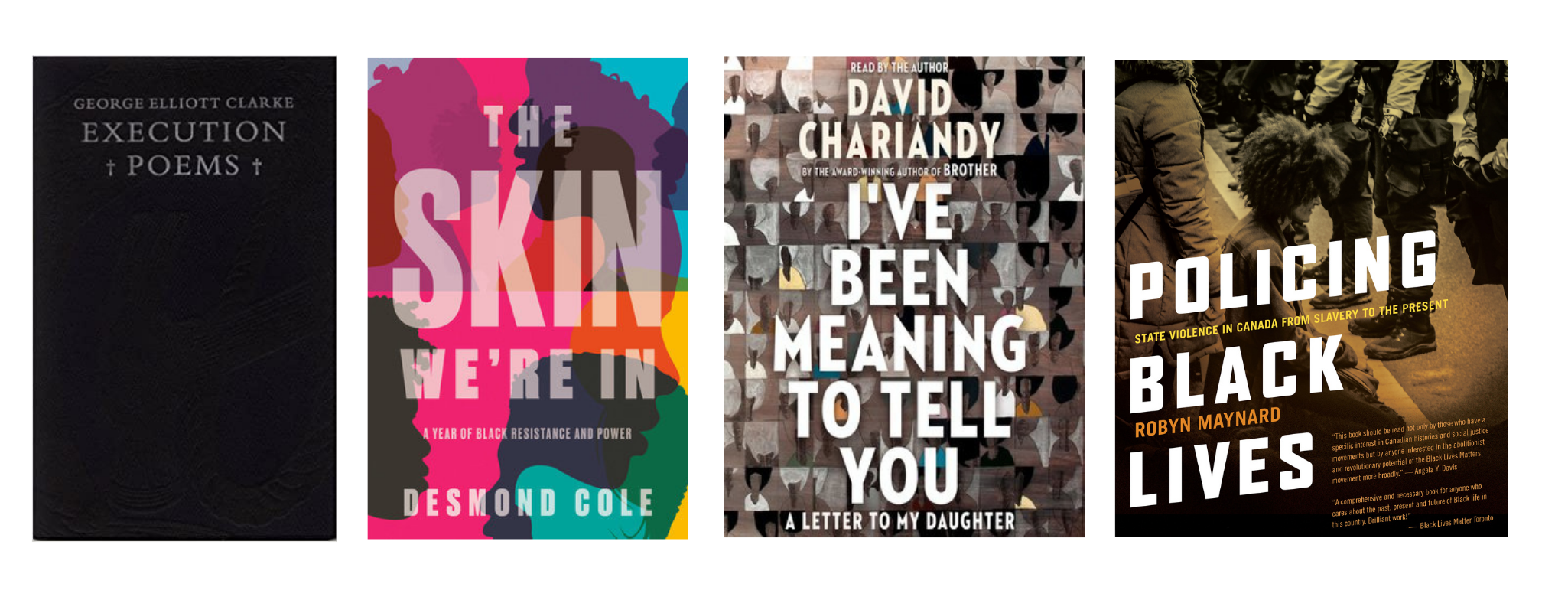
.jpeg)

